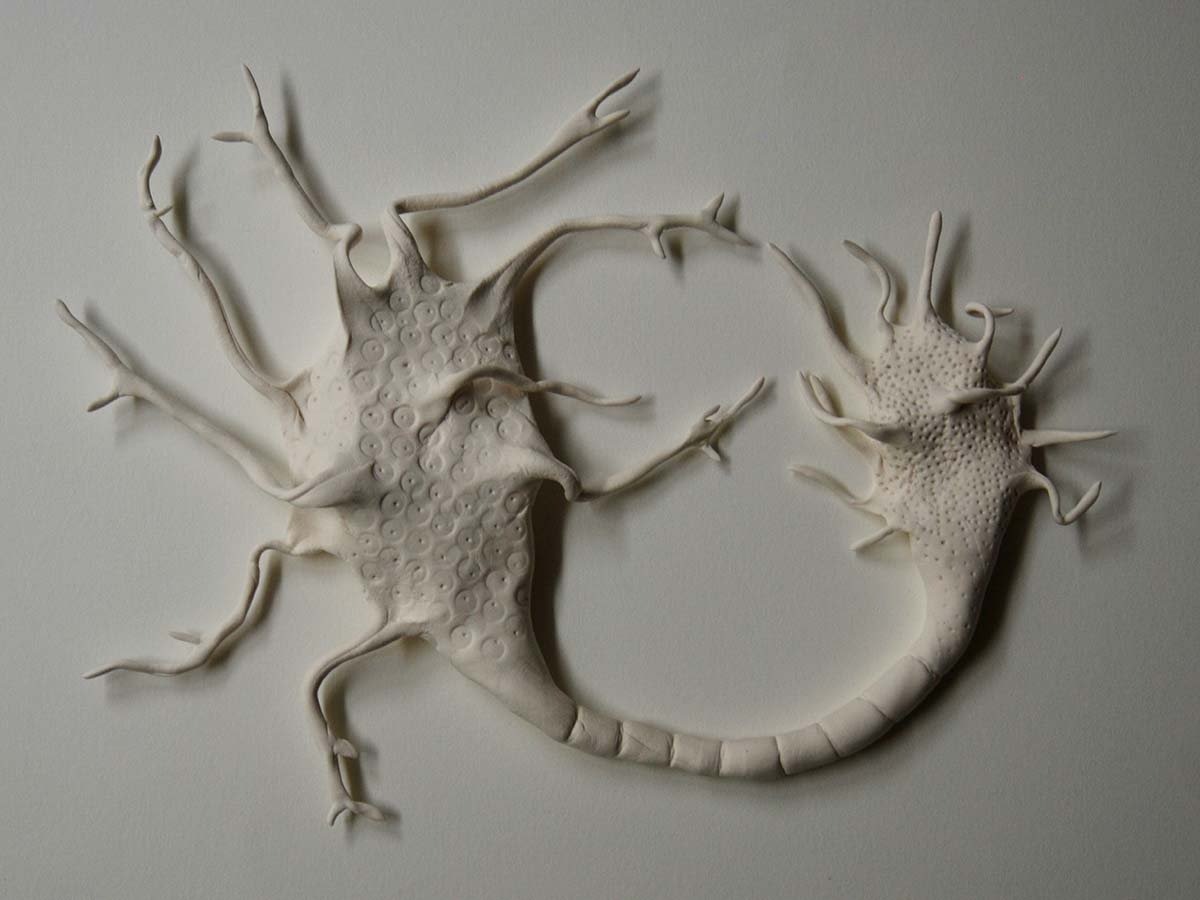Transcendental family systems
Ready for ceremonies with mum and dad, the grandparents plus your kids and even the dog?
Shanthi Chandrase, ‘Neural Introspection’
Tribal gatherings could be on the cards for all the clan.
Phase one tests showed microdoses of LSD did no statistical harm to Alzheimer’s sufferers.
“LSD’s complex pharmacology works on so many different 5-HT receptors,” 17 to be exact, “that it impairs several of the various functions that lead to Alzheimer’s Disease,” says Vital neuroscience lecturer Dr Charles Nichols.
Testing LSD on Alzheimer’s patients is an adaptation described as “surreal” in the post-lecture discussion by a psychiatrist studying on Vital.
Corresponding tests in the UK are taking place around Liskeard in an idyllic corner of Cornwall, England. Phase one tests for safety have indicated no harm using microdoses of up to 20ug.
There was however a noticeable increase in ‘psychotic episodes’ amongst the placebo group. Suppress your giggles triggered by thoughts of oldies on an LSD placebo turning up at the health centre convinced they’ve seen a pink elephant.
“Psychedelic protocols with children will happen”
Sounds like the elders can join in the ancestor ceremony; as befits them.
So can the younger generation.
“Absolutely there's a place for effective and safe psychedelic therapy in younger people,” said Dr Ben Sessa in the Q&A after his Vital lecture back in the Therapy module.
“I have seen too many teenagers lose the battle to mental disorder and kill themselves in my career,” continued Dr Sessa in fine style, “I have no doubt that psychedelic protocols with children will happen.”
It’s on already in fact. "MAPS are currently leading the pack in terms of MDMA for PTSD, are going to be doing PTSD research in initially teenagers 14 to 17 then younger age group 11-14, and then possibly six to six to 11,” says Dr Sessa.
And mum? She can feel really special down at the ceremony.
“Hormone replacement therapy significantly increases 5-HT2A expression”
Charles’ is admired for his ‘animal models’. Not a collection of balsa wood dinosaurs that adorn his lab windowsill; rats bred to be especially sensitive to psychometric testing. This sensitive rat pack is mostly female, which has led Charles’ team to discern a key detail for menopausal psychedelic voyagers.
“Oestrogen, and hormone replacement therapy significantly increase 5-HT2a expression,” he reveals, “So we have to optimise women and men differently.”
To test for depression whether treated with psilocybin, ketamine or SSRIs, rats are usually challenged to swim across a small basin of water towards an exit duct. Paddling around searching around for the way out is known as ‘active coping’ and therefore healthy. Zoning out in the middle of the water awaiting your watery end ‘cos what’s the point anyway? is ‘passive coping’, and bad news of course.
Plus with dogs and cats taking Prozac and other SSRIs it can’t be long before your favourite furry fellow sentient beings are in a higher state of consciousness too.
Fun for all the family.




